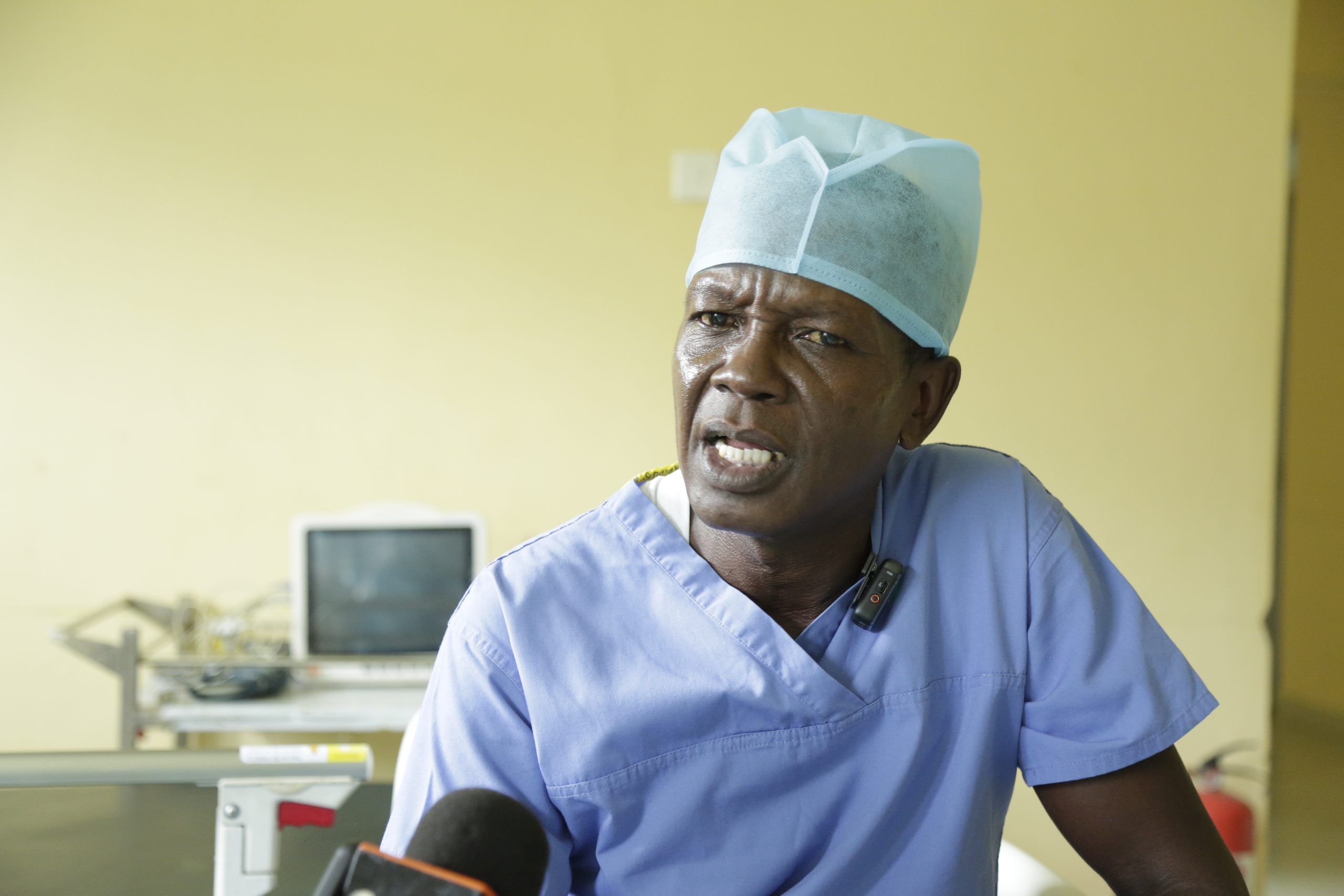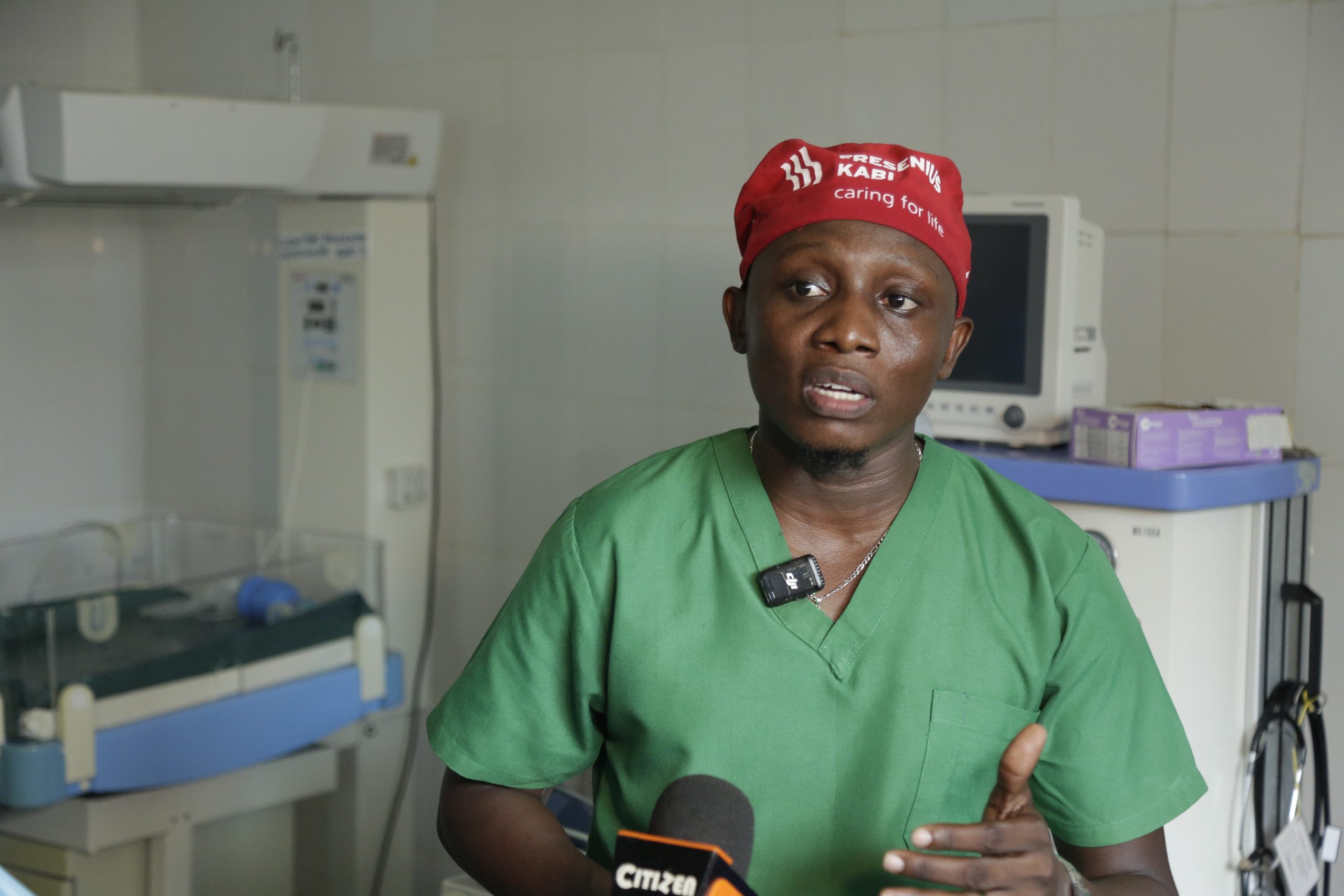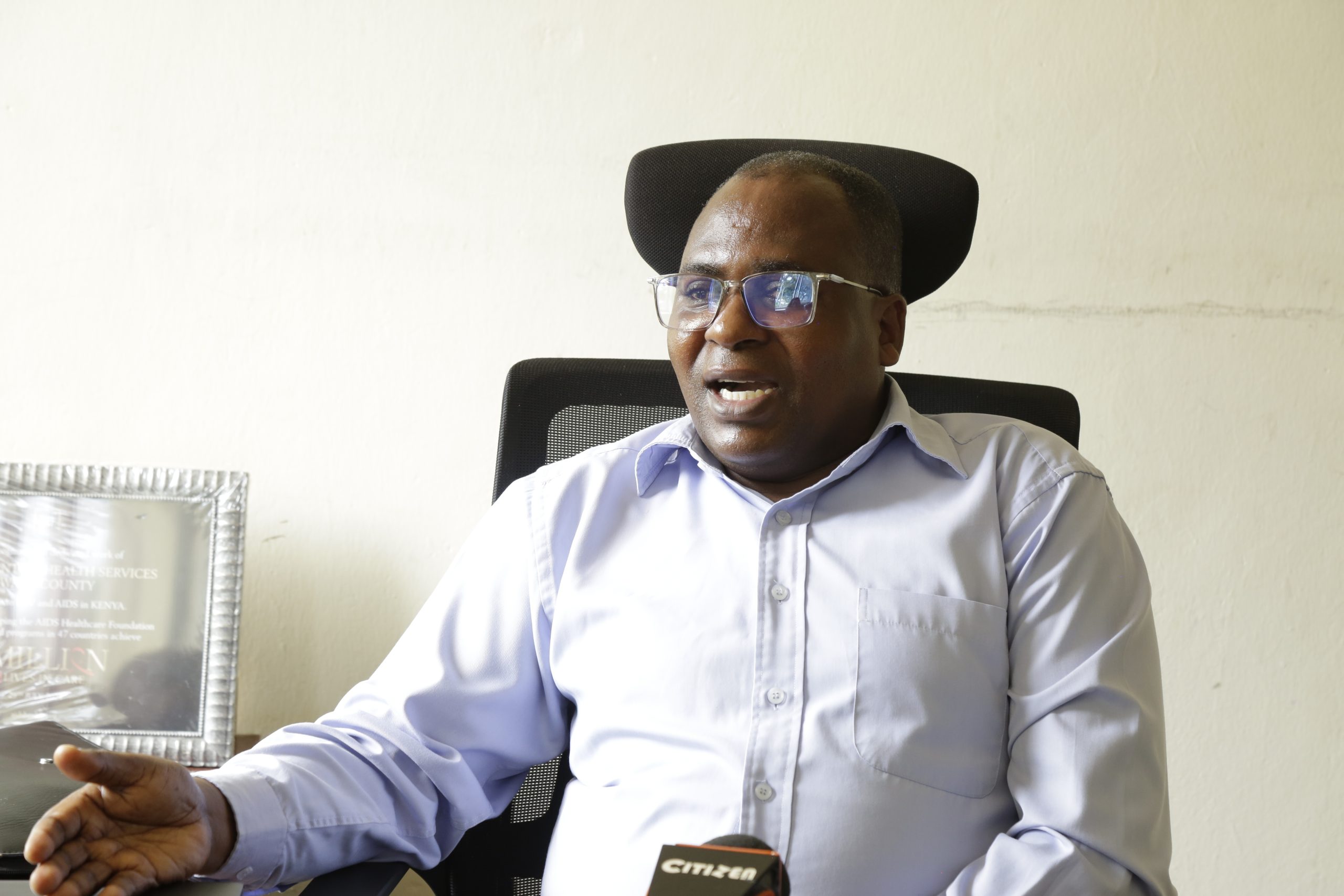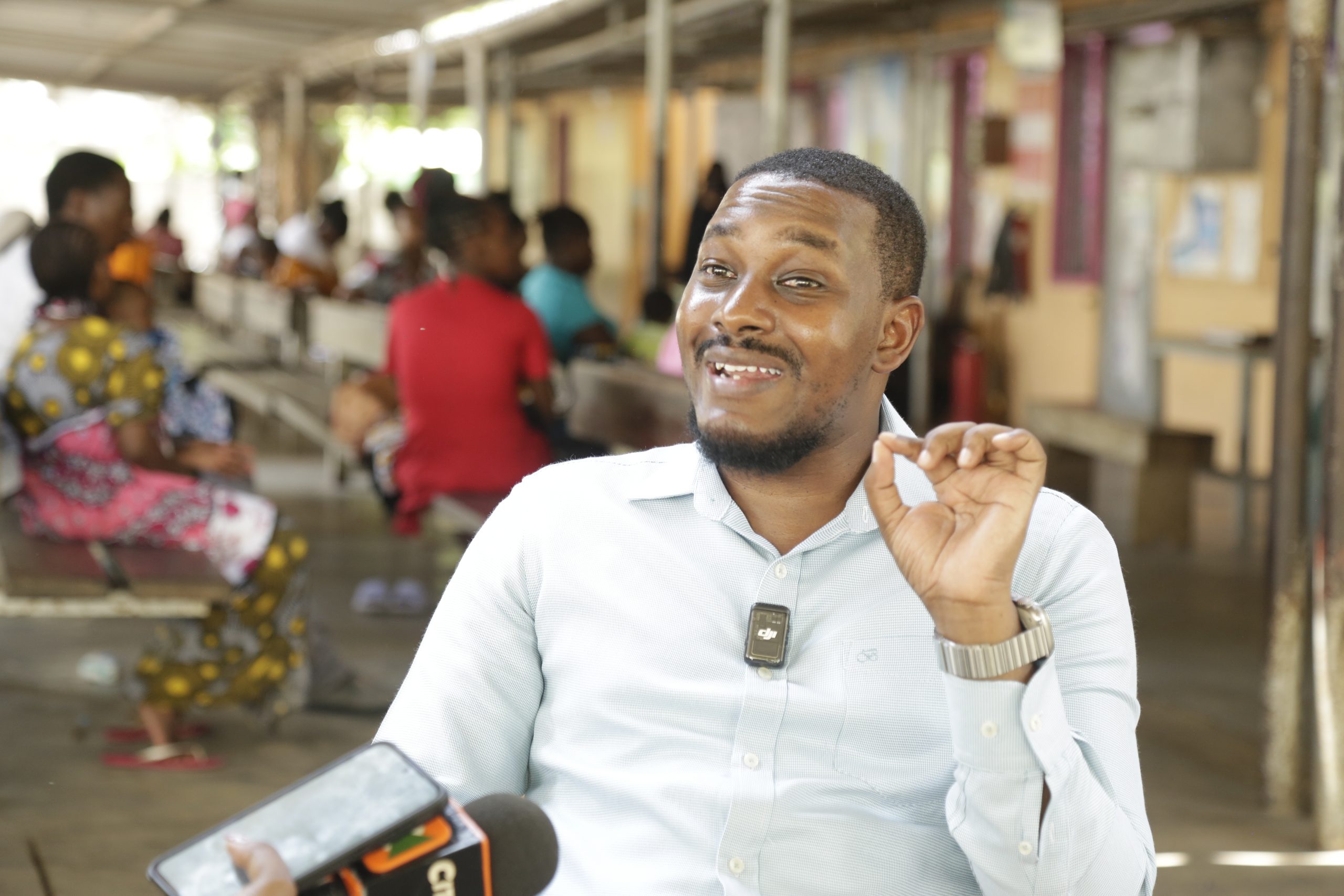
A Kwale man’s journey to empower male contraception
Imagine living in a society where the man takes the lead role in planning his family.
This is the story of the changing face of family planning in Kwale County where Richard Kilundo, a 55 year old nursing officer and a father of three made a personal choice to undergo vasectomy.
He is one of the two men who have undergone vasectomy in Kwale for the last one year.
After years of consideration and an open dialogue with his wife, he finally settled on this family planning method on 21st of September 2024, finding peace of mind as he approaches retirement and considering the financial difficulties.
“My firstborn is 36 years old, and my youngest is 19. Raising and educating them has been a challenging but fulfilling journey. Given the current economic climate, I realized it was no longer feasible to have more children,” he said.
Speaking about his journey, Kilundo admitted that the decision was not easy and took him over three years to finalize. “I consulted friends, health facilities, and NGOs, seeking information about vasectomy services. Eventually, I opted for the procedure at the Lunga Lunga Sub County Hospital,” he shared.

Kilundo’s decision was met with mixed reactions including skepticism from some men who associate vasectomy with loss of masculinity.
“Many believe having more children ensures future security or blessings. But I argue that providing quality education and opportunities for the children you already have is the real blessing,” Kilundo emphasized.
He also highlighted the challenges his wife faced with hormonal family planning methods, including adverse effects of her health due to high blood pressure.
“It was only fair for me to take up the responsibility. Family planning isn’t just a woman’s job,” he noted.
Kilundo is determined to challenge societal norms and encourage other men to share the responsibility of family planning. He assures men that the procedure is painless and does not affect their health or vitality. “It’s about understanding the economic realities and ensuring a better future for our families,” he said.
Allan Chibu a nurse at Lunga Lunga Sub-County Hospital says that highlights the procedure’s effectiveness and encourages its adoption among men, saying, “Vasectomy is a simple and highly effective method of birth control for men,” says Chibu. “It involves a minor surgical procedure where the tubes carrying sperm are cut and sealed.”
Vasectomy is a simple, outpatient surgical procedure that provides permanent contraception for men.
By cutting or sealing the vas deferens, the tubes responsible for transporting sperm, vasectomy ensures that sperm does not mix with semen during ejaculation. It is over 99% effective and offers a long-term solution for couples seeking to limit or stop childbearing.
He says the procedure is typically performed under local anesthesia and can be done in a doctor’s office or a clinic adding that recovery time is minimal.
Vasectomy is highly effective, however it remains relatively uncommon in Kenya, Chibu attributes this to several factors including cultural beliefs and misconceptions about the procedure’s impact on sexual function.

“Some men believe that vasectomy will affect their sexual performance,” says Chibu. “However, this is not true. Vasectomy only prevents the release of sperm, it does not affect sexual desire or pleasure.”
Access to safe, voluntary family planning is a human right crucial to achieving gender equality and women empowerment.
Kenya has made great strides in family planning, evident through increased uptake of contraceptives.
According to United Nations Population Fund (UNFPA), the percentage of married women using modern contraceptives has steadily increased over time, from 32% in 2003 to 57% in 2022. Over the same period, the unmet need for family planning declined from 27% to 14% (KDHS 2022). Kenya aims to achieve 64% Modern Contraceptive Prevalence Rate (mCPR) by 2030.
UNFPA is working to address barriers to accessing family planning by ensuring a steady, reliable supply of quality contraceptives, strengthening the supply chain management system, and strengthening health workers’ capacity to provide services, particularly long-acting and permanent family planning methods.
In partnership with UNFPA, Kenya Medical Supplies Authority (KEMSA) has reduced stockouts in health facilities from 15% to 3% by leveraging on technology dubbed Integrated Logistics Information Systems (iLMIS) which ensures timely delivery of medical supplies particularly Family Planning to healthcare facilities across the country.
Also read https://kbc.co.ke/kemsa-maximising-technology-reduce-medical-stockouts/
Kwale County has integrated family planning services across 178 healthcare facilities, offering a wide range of methods for both genders, including vasectomy for men, this according to the Health CEC Kwale County, Dr. Francis Gwama.

He said outreach programs and community dialogues are being conducted to educate residents about the benefits of family planning and debunk harmful myths.
Dr. Gwama emphasized the importance of shifting the burden of family planning away from women. “We are urging men to take an active role and consider male-specific methods like vasectomy,” he said.
On his part, Dr. Matano Kibwana the Medical Superintendent at Kilifi County and Referral Hospital, has called on male involvement in maternal health noting that cultural and societal norms have historically excluded men from the pregnancy and delivery process but Kibwana says his team is determined to change that.
“We are encouraging male partners to participate, starting with antenatal care, so they understand the pregnancy process and the support their partners need,” said Dr. Kibwana.
He noted that through partnerships and outreach programs implemented by the International Centre for Reproductive Health (ICRH), UNFPA has worked to increase access to family planning services in the county.

Dr. Matano remarked that the hospital’s collaboration with the United Nations Population Fund (UNFPA) has been instrumental in improving maternal and child health outcomes in the county.
“UNFPA has supported us in numerous ways, particularly in maternal and child health. Their contribution has pushed us towards better care for our mothers and children,” said Dr. Kibwana.
Mary Mwakugu, a nurse at Kilifi County Referral Hospital, outreach efforts, including barazas and sessions at mosques have improved awareness about family planning overall, but the uptake of vasectomy is still low. In 2022 and 2023, the hospital recorded only one vasectomy each year.
She emphasised vasectomy’s safety and effectiveness calling on the society to shun the misconceptions. “Many misconceptions stem from misinformation. Men fear losing their sexual urge or performance, but these fears are unfounded.”
Read https://kbc.co.ke/tech-revolutionizes-family-planning-kenyas-coastal-counties/
Watch https://www.youtube.com/watch?v=EDHUsOc9o8Q
